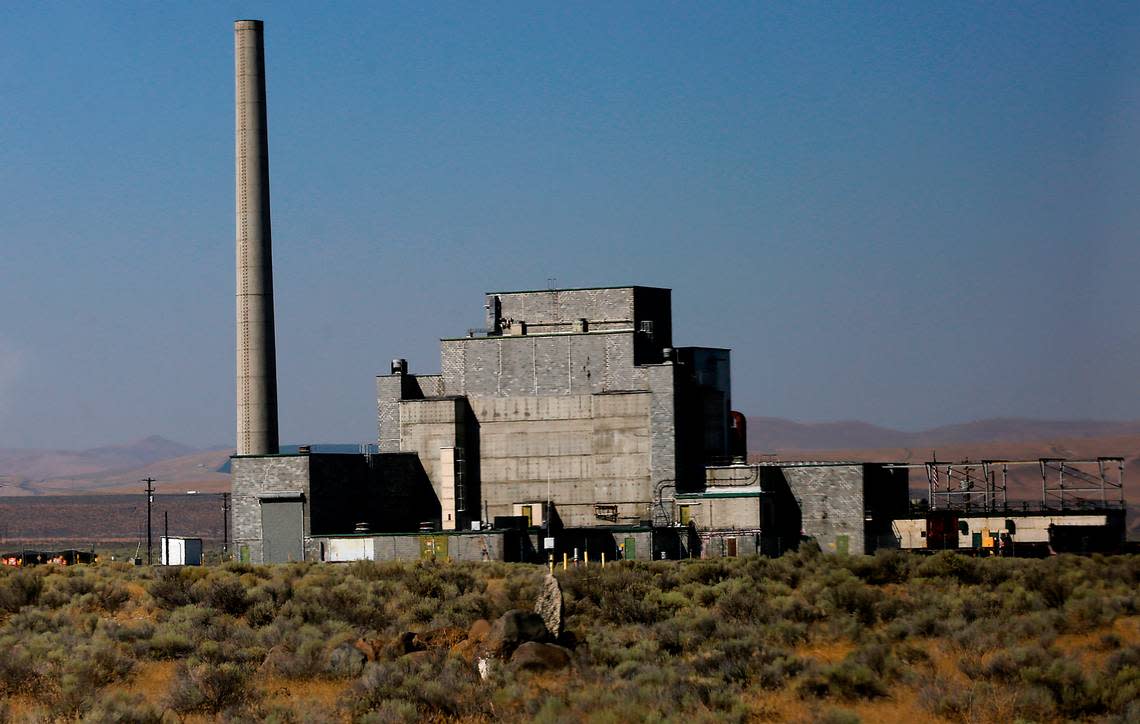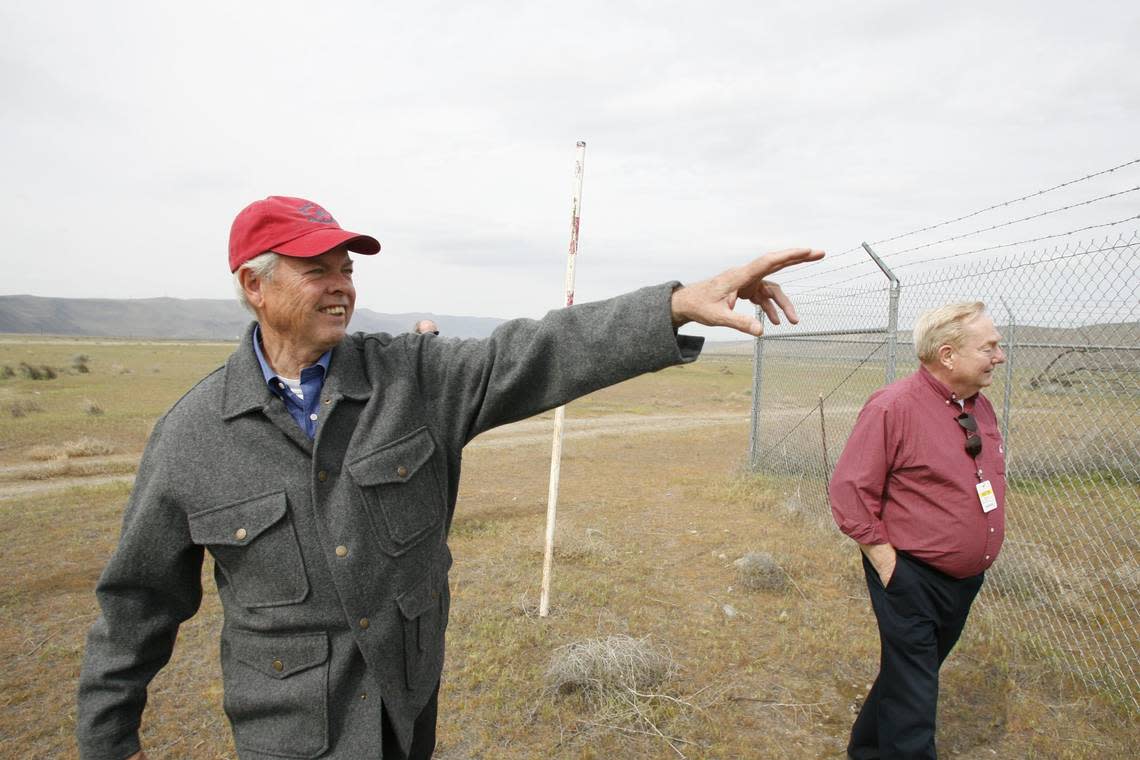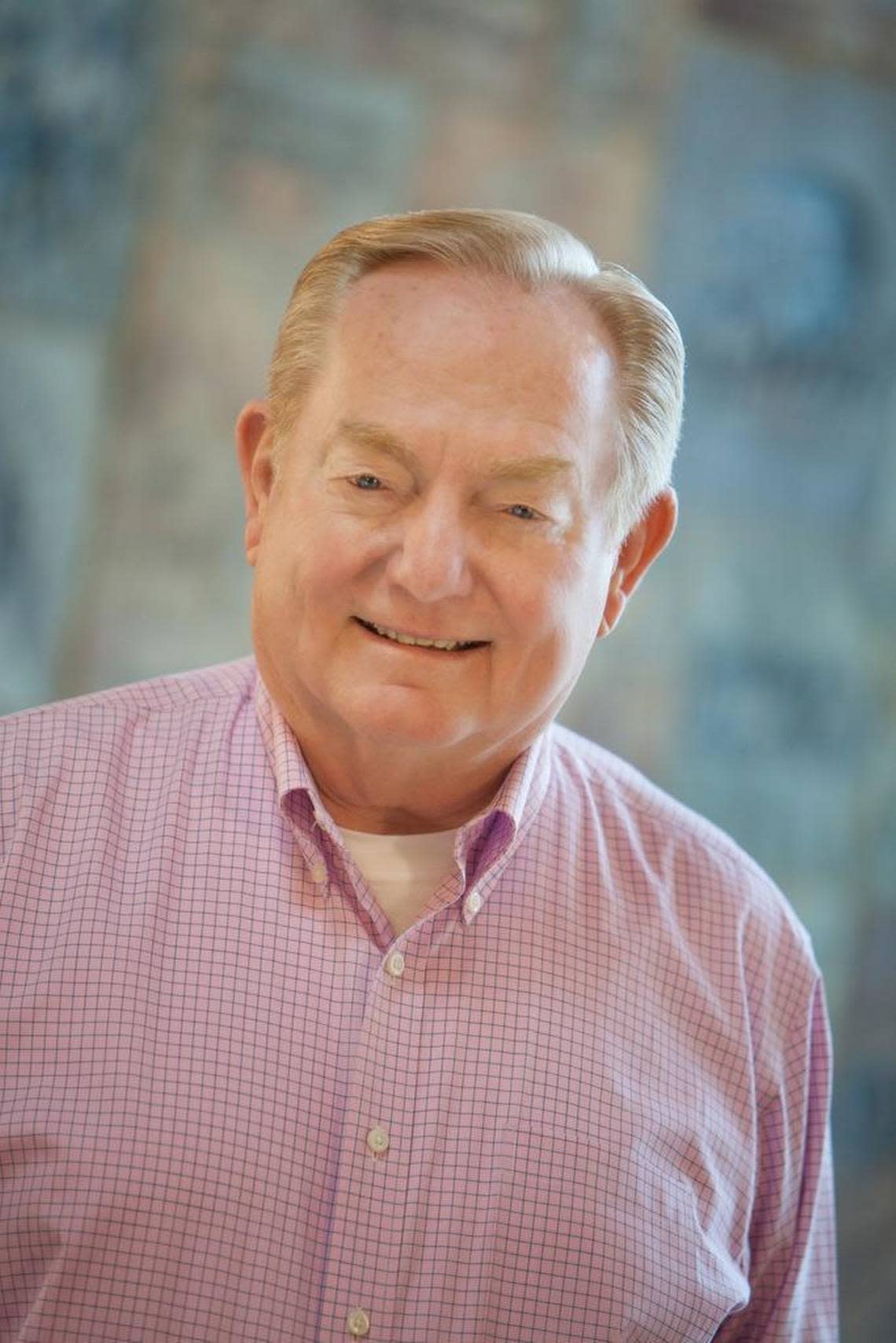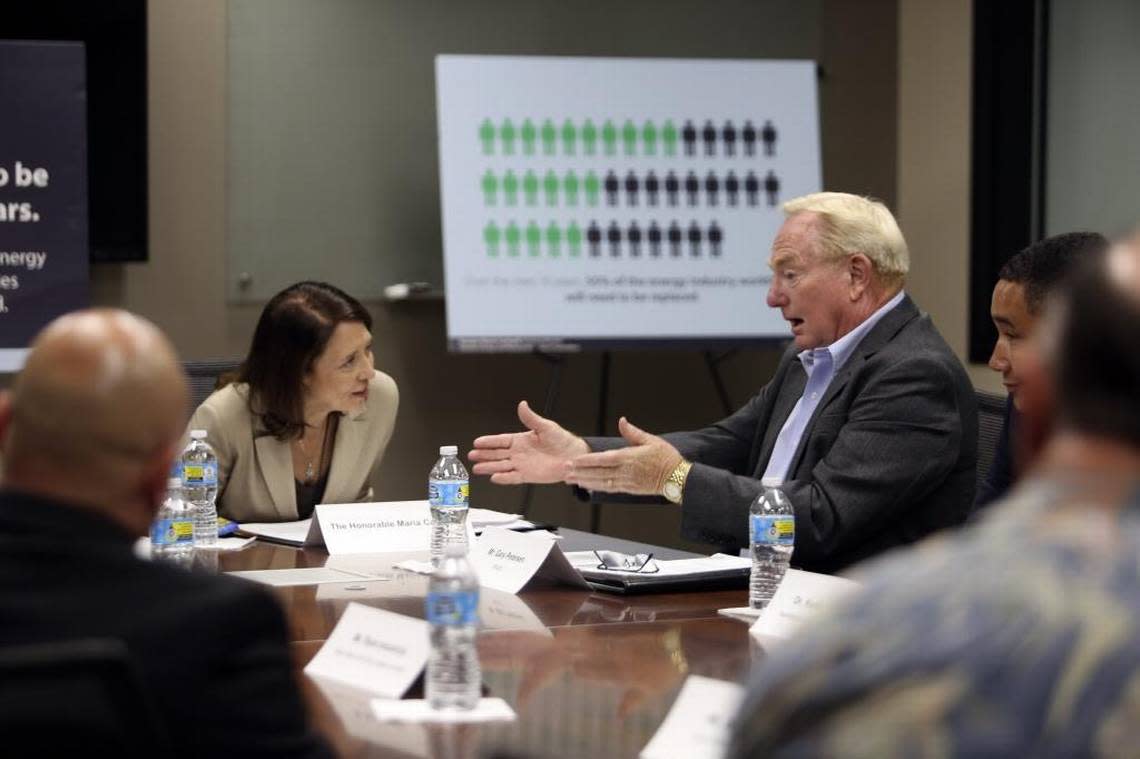‘True champion.’ Passionate Tri-Cities visionary who shaped its diversified economy dies
Gary Petersen, a champion of the Tri-Cities who played a key role in shaping its diversified economic future, died Friday.
Petersen, 83, was the retired vice president for federal programs at the Tri-City Development Council.
“Gary was a force of nature,” said Sen. Patty Murray, D-Wash. “He dedicated his life to the Tri-Cities community, and his vision and work will be felt for generations.”
He was well known in the corridors of the nation’s capital and earned the respect of D.C. decision makers, both Republicans and Democrats, as he lobbied for the interests of the Tri-Cities.
“He was very straightforward,” said retired Rep. Doc Hastings, R-Wash. When Petersen retired from TRIDEC, Hastings said he “was very, very effective” in his work with Congress.
His advocacy for the Hanford cleanup mission has been a cornerstone of the success of the region, said Rep. Dan Newhouse, R-Wash.
But lobbying, particularly for ever increasing Hanford site cleanup budgets and for research and infrastructure for Pacific Northwest National Laboratory in Richland, was less than 20% of his job.
If it was good for the Tri-Cities economy, it interested Petersen.
“His historical knowledge, wisdom and understanding of our region’s priorities was matched by few, and I have no doubt his name will go down in history with the likes of Sam Volpentest and Bob Ferguson,” Newhouse said. “He will be deeply missed.”
Champion of Tri-Cities projects
One project Petersen spearheaded before his 2017 retirement from TRIDEC resulted in DOE returning 1,614 acres of unused Hanford site land just north of Richland to the Tri-Cities for economic development.
“(Petersen) had the foresight to see the Tri-Cities would become a clean energy powerhouse and secured the land and the investments needed to set up the next generation of the Tri-Cities’ clean energy economy,” said Sen. Maria Cantwell, D-Wash. “I am incredibly proud to have worked with Gary and to have been able to call him a friend.”
Petersen collaborated with other advocates for the creation of the new Manhattan Project National Historical Park, which includes Hanford’s historic B Reactor.

He was an early supporter of saving the stone Bruggemann warehouse, and brought the family evicted from the Bruggemann ranch back to see it for the first time since the property was seized in 1943 for a secret military project. The warehouse has been included in the national park.
As budgets of more than $2 billion for Hanford cleanup were developed each year, he was a voice for the community in the nation’s capital, talking about what work the community considered most important at the nuclear reservation.
“He knows the budget as well as any staff member on the Appropriations Committee, and this isn’t just limited to nuclear waste cleanup, but also includes research and development capabilities that support the PNNL mission, transportation, agriculture and so much more,” Murray said when Petersen retired from TRIDEC.
He also worked for federal money for new buildings to modernize the PNNL campus in Richland.
Petersen advocated to increase work for small local businesses at Hanford, to save the Snake River dams, for access to the top of Rattlesnake Mountain, for historical markers for Richland’s “alphabet homes,” and for local interests in the Columbia River Treaty with Canada.
He also worked with Hastings to build community support for an ongoing project to return 34 miles of Columbia River shoreline from federal to local control.
“He was a true champion of Tri-Cities transition to a diversified economic future,” said Jack Bagley, a Battelle senior vice president who knew Petersen for 40 years.

He was one of three local leaders, including the late Tri-Cities entrepreneur and nuclear expert Ferguson, who successfully sued the federal government in 2010, forcing it to resume the licensing review of Yucca Mountain, Nev., for disposal of the nation’s high level radioactive weapons waste and used commercial nuclear fuel.
It gave communities storing radioactive waste and fuel hope for a time that the project might be completed.
Launched Hanford related nonprofit
In 2020, with community leaders Ferguson and Bill Lampson, he cofounded Clean Up Hanford Now, a Tri-Cities nonprofit advocating for accelerating cleanup at the Hanford nuclear reservation and promoting a new clean energy mission for the site in Eastern Washington.
Among his interests was pushing to have much of Hanford’s least radioactive tank waste grouted and sent out of state for disposal, which he said would speed up cleanup of Hanford and save taxpayers hundreds of millions of dollars.

“Gary Petersen will go down in history as one of the greatest champions the Tri-Cities has ever known,” said David Reeploeg, Petersen’s successor at TRIDEC and a former aide to Cantwell.
“As a former congressional staffer, I got to see firsthand just how effective an advocate Gary was for Hanford cleanup, PNNL, nuclear energy and the entire community,” Reeploeg said. “Gary was a giant, and the Tri-Cities will forever be a better place because of him.”
Petersen was born in Omak, Wash., and educated in communications at Washington State University. He remained an avid Cougar through the rest of his life.
He came to the Tri-Cities at the start of 1965 to work for Battelle at what is now Pacific Northwest National Laboratory and would become its head of communications.
He also worked for a time at Hanford.
Other than short stretches to work at the Nevada Test Site he remained a resident of Richland until moving to Eagle, Idaho, with his wife, Margaret, about a year ago to be closer to family.
Known for Hanford tours
He retired from PNNL in 2003 and took on the job of pursuing the Tri-Cities federal interests at TRIDEC, succeeding Sam Volpentest.
Cantwell said that Petersen was “cut from the same cloth” as Volpentest and left an indelible footprint on the Tri-Cities.
“From the top of Rattlesnake to the Hanford Reach and down to the mouth of the Snake River, Gary Petersen loved the Tri-Cities and had a story for every corner of our community,” said Karl Dye, TRIDEC chief executive officer.
“He is and always will be a legend who, along with Sam Volpentest, Bob Ferguson and others, laid the foundation upon which the future of the Tri-Cities continues to be built,” Dye said.
Petersen’s enthusiasm was contagious, said Steven Ashby, director of PNNL.
“Whether he was walking the halls of Congress or leading a tour at the Hanford site, he was always a fountain of knowledge and energy,” said Sen. Murray.

A Hanford tour led by Petersen was a rite of passage for any Washington state congressional staffer, said Jaime Shimek, former congressional staffer for both of Washington’s U.S. senators and now executive director of communications and external engagement at PNNL.
“Gary was quick with a story and a smile as we drove north from the federal building, explaining everything from the alphabet houses to the town of White Bluffs,” Shimek said. “Watching him walk a new congressional staffer through the story of Hanford, PNNL, and the Tri-Cities — his eyes always twinkling — brought the delight of learning this area anew for me.”
When Petersen retired from TRIDEC, the organization’s then-president Carl Adrian said that those who were familiar with Petersen’s tours would give him a prompt if the tour was wrapping up and he had not told one of his best stories.
“Gary, were there ever any alligators at Hanford?” Adrian would ask.
And Petersen would be off, telling the story of alligators penned along the Columbia River for radiation research until they escaped.
A fisherman caught one at Ringold, which he had stuffed and displayed at a local sports shop.
Friend and mentor
Petersen was both a mentor and a friend to countless people, including Murray, the senator said.
Todd Nelson — who worked under Petersen at Hanford, at PNNL and as a WSU summer student — said Petersen was “always willing to pass along his knowledge and to mentor students and employees alike. I was one of hundreds of beneficiaries who also have him to thank for making our jobs fun.”
Hastings remembered that after the congressman succeeded in having Hanford’s historic B Reactor included in a new national park, Petersen arranged a special bus to take Hastings and his family to the reactor for a dedication ceremony.
“We have lost a true gentleman and a great friend,” Ashby said.
Petersen was diagnosed with cancer shortly after moving to Idaho and had undergone treatment. He died unexpectedly.
Petersen is survived by his wife, daughters Michele Kophs and Nicole Barnes, and six grandchildren.
